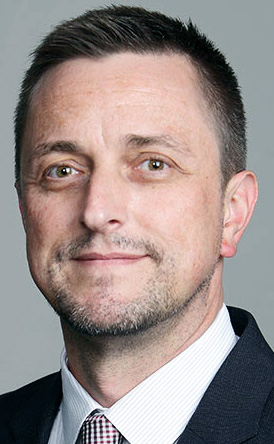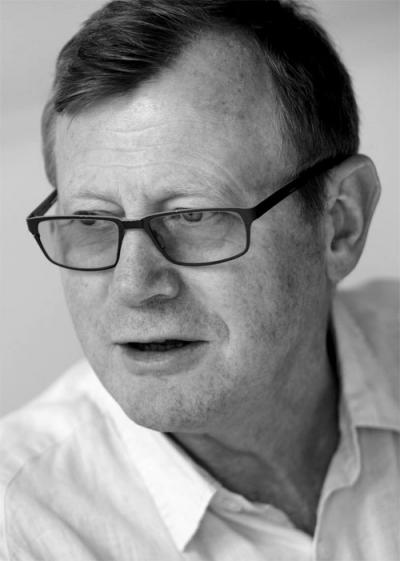/ Featured Blogs
Words and Descriptive Phrases as Trademarks Registered as Domain Names
 In a trademark context, who owns or controls, or would prevent others, from using words and phrases commonly available to speakers in a language community, is in persistent tension. While common words alone or combined may become protected from infringing uses under trademark law, their protection is contingent on factors such as linguistic choices and strength or weakness of marks in the marketplace.
In a trademark context, who owns or controls, or would prevent others, from using words and phrases commonly available to speakers in a language community, is in persistent tension. While common words alone or combined may become protected from infringing uses under trademark law, their protection is contingent on factors such as linguistic choices and strength or weakness of marks in the marketplace.
- By Gerald M. Levine
- Comments: 0
- Views: 13,940
Domain Abuse: Are We Speaking the Same Language?
 For those of us in the domain name industry, it's clear that security threats and the way we track, report, and mitigate them has been a topic of increased discussion and focus in recent months. As we prepare to come together as a community again at the next ICANN public meeting in Marrakech, many of us will look to continue these conversations, as there is no doubt it is a topic of importance, relevance and urgency for our community at this time.
For those of us in the domain name industry, it's clear that security threats and the way we track, report, and mitigate them has been a topic of increased discussion and focus in recent months. As we prepare to come together as a community again at the next ICANN public meeting in Marrakech, many of us will look to continue these conversations, as there is no doubt it is a topic of importance, relevance and urgency for our community at this time.
- By Raymond Zylstra
- Comments: 0
- Views: 8,464
Thoughts on Libra
 Facebook has announced its Libra cryptocurrency. This is good news for cryptocurrencies and market-incentivized networks. I worry that Libra's financial inclusion might come with an attendent loss of privacy or autonomy. After months of speculation, Facebook on Tuesday announced Libra, a cryptocurrency with the mission of enabling a simple global currency and financial infrastructure that empowers billions of people.
Facebook has announced its Libra cryptocurrency. This is good news for cryptocurrencies and market-incentivized networks. I worry that Libra's financial inclusion might come with an attendent loss of privacy or autonomy. After months of speculation, Facebook on Tuesday announced Libra, a cryptocurrency with the mission of enabling a simple global currency and financial infrastructure that empowers billions of people.
- By Phillip J. Windley
- Comments: 0
- Views: 10,409
Havana Can Have 5G Before Miami
 Compared to Miami, Havana is an Internet desert, but Havana may have 5G wireless connectivity before Miami. 5G architecture, US politics and policy, and the 5G timetable favor Havana. Let's start with 5G architecture. 5G will require many "small cells" because it uses high-frequency radio signals that don't travel as far as 4G signals and are more easily blocked by obstructions like trees and buildings.
Compared to Miami, Havana is an Internet desert, but Havana may have 5G wireless connectivity before Miami. 5G architecture, US politics and policy, and the 5G timetable favor Havana. Let's start with 5G architecture. 5G will require many "small cells" because it uses high-frequency radio signals that don't travel as far as 4G signals and are more easily blocked by obstructions like trees and buildings.
- By Larry Press
- Comments: 0
- Views: 9,671
The Start of Something Big: ICANN Announces Planning for Round Two of New gTLDs
 ICANN has published a short paper in advance of its 65th meeting in Marrakech which starts on 23 June 2019. Entitled, "ICANN Org's Readiness to Support Future Rounds of New gTLDs," it describes ICANN's working assumptions for "policy implementation and operational readiness for a subsequent round of new gTLDs". The document is necessary for ICANN to move forward with essential preparations for the next round.
ICANN has published a short paper in advance of its 65th meeting in Marrakech which starts on 23 June 2019. Entitled, "ICANN Org's Readiness to Support Future Rounds of New gTLDs," it describes ICANN's working assumptions for "policy implementation and operational readiness for a subsequent round of new gTLDs". The document is necessary for ICANN to move forward with essential preparations for the next round.
- By Nick Wood
- Comments: 1
- Views: 9,731
WHOIS Database Download: Proactive Defense Against the Rising Tide of BEC Fraud
 How many times have you heard that humans are the weakest link in cybersecurity? The headlines have proven that over and over again. In particular, business email compromise or BEC (also known as email account compromise or EAC) scams, which typically target an employee with access to the financial resources of his company -- this could be a C-level executive or any high-ranking officer -- for fraud are still on a constant uphill trend.
How many times have you heard that humans are the weakest link in cybersecurity? The headlines have proven that over and over again. In particular, business email compromise or BEC (also known as email account compromise or EAC) scams, which typically target an employee with access to the financial resources of his company -- this could be a C-level executive or any high-ranking officer -- for fraud are still on a constant uphill trend.
- By Jonathan Zhang
- Comments: 0
- Views: 6,854
Trademark Owners Beware – There’s a New Brand Identifier to Worry About
 You might not understand how crypto-currencies or blockchain wallets work, but Facebook's announcement this week is a clear signal that these new technologies will soon become ubiquitous. Facebook's introduction of its own crypto-currency to its 2 billion users means mass adoption of crypto-currencies and digital wallets are on the horizon. This has implications that trademark owners need to be aware of.
You might not understand how crypto-currencies or blockchain wallets work, but Facebook's announcement this week is a clear signal that these new technologies will soon become ubiquitous. Facebook's introduction of its own crypto-currency to its 2 billion users means mass adoption of crypto-currencies and digital wallets are on the horizon. This has implications that trademark owners need to be aware of.
- By Thomas Barrett
- Comments: 0
- Views: 15,548
5G and the Health Scare
 Having been involved in the telecommunications industry for a long time, I followed many of the discussions involving health concerns when the 3G and 4G mobile technologies were introduced. This time, with 5G, the situation is no different. Again, there are many communities worried about the potential negative health effects of the radiation that emanates from mobile communications.
Having been involved in the telecommunications industry for a long time, I followed many of the discussions involving health concerns when the 3G and 4G mobile technologies were introduced. This time, with 5G, the situation is no different. Again, there are many communities worried about the potential negative health effects of the radiation that emanates from mobile communications.
- By Paul Budde
- Comments: 0
- Views: 5,562
Is UN SG Guterres Driving the Bus That Macron Threw UN IGF & Multistakeholderism Under at IGF Paris?
 A fresh & transparent, community-led, bottom-up, public debate has now become unavoidable and undeferrable. "....we need limited and smart regulation" were the clear and unambiguous words of UN Secretary-General Antonio Guterres at the launch of the final report of his UN Panel on Digital Cooperation last week in New York. Last November, I wrote about President Macron throwing down the gauntlet at UN IGF Paris challenging IGF and Multistakeholderism to become more relevant.
A fresh & transparent, community-led, bottom-up, public debate has now become unavoidable and undeferrable. "....we need limited and smart regulation" were the clear and unambiguous words of UN Secretary-General Antonio Guterres at the launch of the final report of his UN Panel on Digital Cooperation last week in New York. Last November, I wrote about President Macron throwing down the gauntlet at UN IGF Paris challenging IGF and Multistakeholderism to become more relevant.
- By Khaled Fattal
- Comments: 0
- Views: 6,544
The UN Panel on Digital Cooperation: An Agenda for the 2020s
 The UN Panel on Digital Cooperation presented last week in New York its final report, and an old question is back on the international agenda: Could the global Internet be ordered by a reasonable arrangement among stakeholders which would maximize the digital opportunities and minimize the cyber risks by keeping the network free, open and safe?
The UN Panel on Digital Cooperation presented last week in New York its final report, and an old question is back on the international agenda: Could the global Internet be ordered by a reasonable arrangement among stakeholders which would maximize the digital opportunities and minimize the cyber risks by keeping the network free, open and safe?
- By Wolfgang Kleinwächter
- Comments: 0
- Views: 12,365